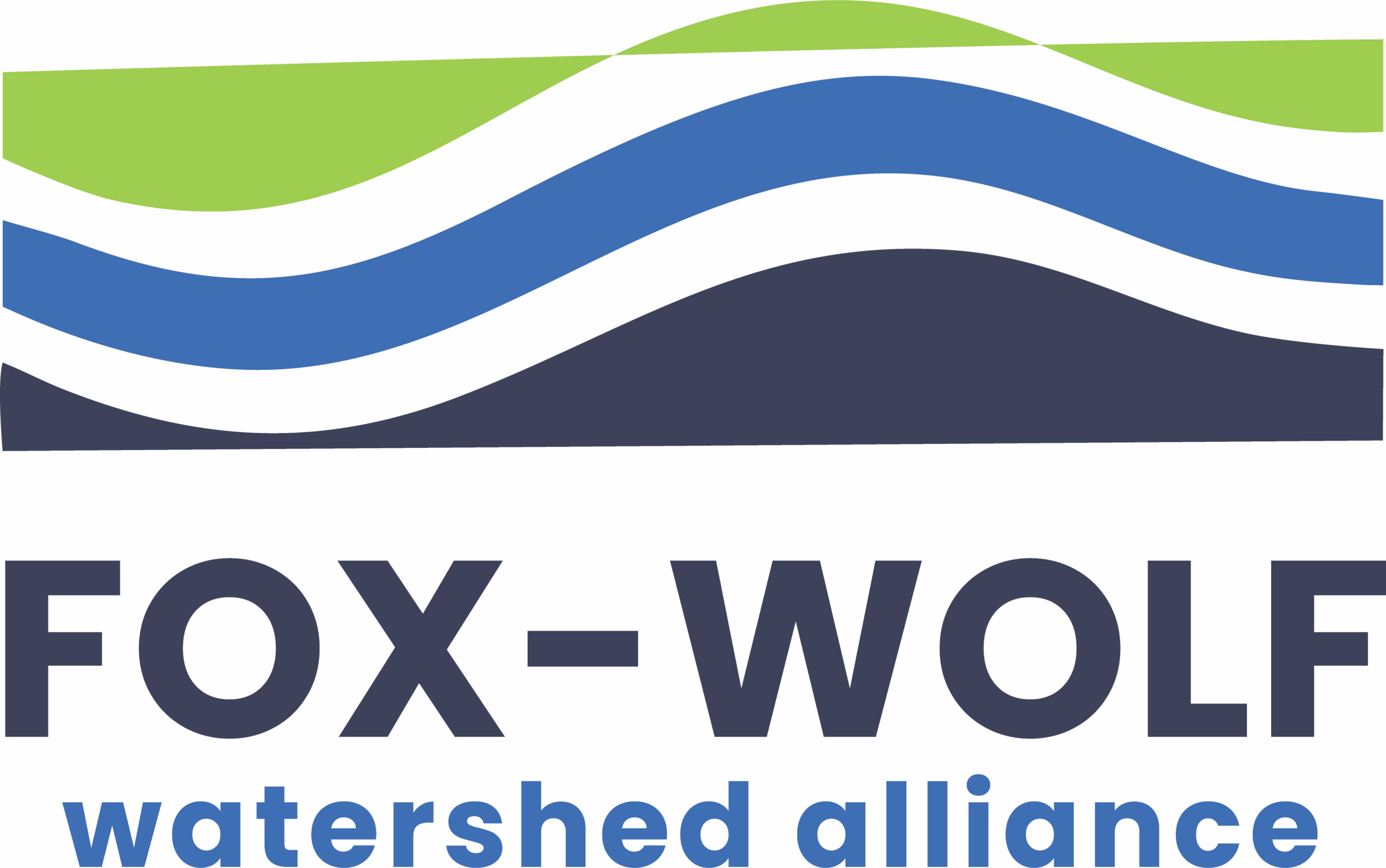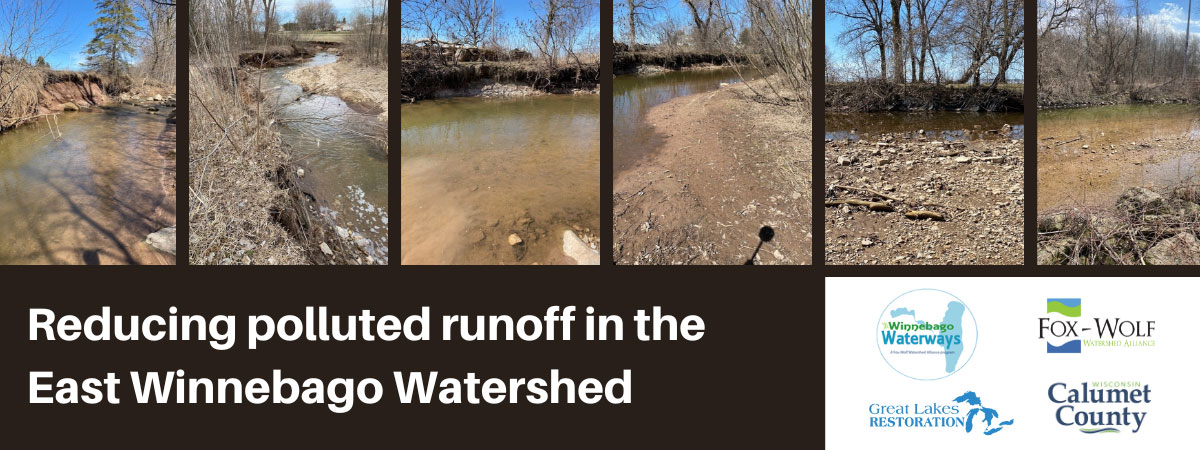The Winnebago Waterways Program at Fox-Wolf Watershed Alliance (Fox-Wolf) announced today that it received $510,325 from Great Lakes Restoration Initiative (GLRI) funding through the US Environmental Protection Agency (EPA) to reduce polluted runoff from agricultural fields on the east side of Lake Winnebago.
Fox-Wolf awarded $450,000 of those funds to Calumet County Land and Water Conservation Department (LWCD) to work with farmers to design and install three enhanced agricultural runoff treatment systems (E-ARTS). As a project partner, Calumet County LWCD has committed $22,935 of in-kind match through staff time to help get this project in the ground.
E-ARTS is an innovative approach to reducing runoff from agriculture. The system typically consists of a sediment basin, constructed wetland, water control and grade stabilization structures, a pond, and a phosphorus removal device (features may vary by location). The project will also restore 1,900 ft of Brothertown Creek streambank near Brothertown Harbor.
E-ARTS was first tried in this region by Outagamie County through a 2015 Fox-Wolf grant using GLRI funds. They found that this approach provides a cost-effective way, in an agricultural setting, to store water, trap phosphorus and sediment, and reduce the rate of water flowing downstream (especially during storm and snow melt events). This project will help reduce downstream streambank erosion, prevent pollutants from reaching Lake Winnebago, and help reduce downstream flooding.
Phosphorus and sediment pollution that enters Lake Winnebago contributes to poor water clarity, harmful algae blooms, and degraded habitat. The East Winnebago watershed (the area of focus for this project) drains ~27,368 acres of land to Lake Winnebago and about 85% of that land is in agricultural use. This contributes about 5,005 pounds of total phosphorus (TP) and 2,636 tons of total suspended solids (TSS) per year to the Lake from agricultural sources.
Fox-Wolf Watershed Alliance and regional partners are working collaboratively with farmers to find ways to reduce phosphorus and sediment pollution from agricultural sources in this watershed by 83% and 13%, respectively. This includes conservation farming practices such as cover crops, no-till, and low-disturbance manure management as well as permanent, structural solutions like E-ARTS. The goal is to find solutions that result in win-win scenarios for our lakes, rivers, farms and agricultural communities.
This project alone is estimated to annually reduce 296 pounds of phosphorus and 250 tons of sediment from entering Lake Winnebago and hold back 42,390,500 gallons of water runoff. While it is a step in the right direction, more will be needed. Fox-Wolf plans to use this project as a demonstration to showcase the benefits of E-ARTS and encourage others to install more of these systems throughout the region.
For more information about the Fox-Wolf Watershed Alliance or the Winnebago Waterways Program, please visit www.winnebagowaterways.org or contact Korin Doering at (920) 851-0948 or korin@fwwa.org. Winnebago Waterways is a program of the Fox-Wolf Watershed Alliance; an independent nonprofit organization that works to protect, restore, and sustain water resources in the Fox-Wolf River Basin.
Winnebago Waterways is a Fox-Wolf Watershed Alliance recovery initiative. Contact us at wwinfo@fwwa.org



